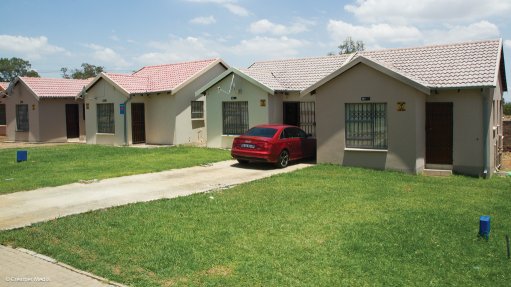
Photo by: Duane Daws
With interest rates expected to rise this year, the housing market is expected to deteriorate, estate agency HomeBid property economist and adviser Neville Berkowitz warns.
“We tracked all the sales and various deeds office registrations of homes for 2014 and 2015 and established that, last year, 289 631 homes were sold and transferred – down 0.2% on 2014. The average house price of R1.23-million was only 0.94% higher than in 2014,” he noted.
Home buying and selling activity, as well as house prices were expected to slow down this year, with the biggest impact coming from the expected rise in interest rates, which would negatively impact mortgage affordability, while the stalling economy would limit remuneration increases and new employment across the board.
“We are at the mercy of the global economy and the issues surfacing about the structural imbalances in China’s slowing economy, the political and economic problems in Brazil and Russia’s oil price woes, make India the only Brazil, Russia, India, China and South Africa member capable of holding up the flag for emerging economies.
“The sentiment of global financiers and investors is likely to continue moving away from emerging economies and favouring the safety of investing in dollar- and euro-based economies.
“This will affect South Africa, as global players will need the sweetening of higher interest rates to keep funding South Africa’s debt and its current account deficit,” Berkowitz pointed out.
In addition, the weakening rand’s impact on imported goods and services, as well the drought’s effect on rising local food prices, would further impact on the inflation rate, forcing interest rates higher in terms of the Reserve Bank’s policy of containing inflation.
The reduced affordability of existing homeowners paying higher monthly mortgage amounts and the reduced affordability by first-time home buyers would translate into a buying down in the market. The buying pyramid would see more activity towards the more affordable section of the market.
Mortgage lenders would also tighten their lending criteria to accommodate the jump in interest rates, the impact of which was expected to reduce the number of home sales and transfers, and reflect a drop in actual home prices. The lower one goes down the home buying pyramid, the smaller the impact on falling home prices.
“Overall, homeowners will have to adjust their expectations when pricing their homes for sale and when looking to buy with more expensive mortgage finance,” Berkowitz added.